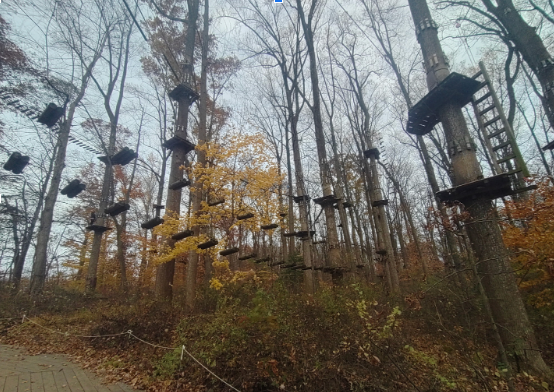Advisory at Walls: An Overlooked Opportunity
- Venya Gulati
- Mar 5, 2025
- 3 min read
The beginning of the 2024-25 school year at Walls marked many schedule changes, such as the revamping of the Monday time periods. Advisory, however, has remained a constant part of all students’ schedules. For some, it may seem like just a study hall or a chance to unwind, but advisory is designed to serve a deeper purpose.
Despite having been part of the Walls curriculum for years, new elements were added to advisory last summer such as a mindfulness moment and journaling. “A lot of people come to Walls because it’s a good school, with the kind of work ethic and competition. And then sometimes it can be too stressful,”explained music teacher Malcolm Willoughby. Willoughby sees advisory as a useful tool towards combating that stress.
Advisory aims to support students in many ways, but the main idea is that it is a moment to pause, reflect upon how students feel, and decide what steps to take in the future to relieve the demanding SWW environment.
Teachers and administrators go about achieving this goal in different ways. For example, English teacher Laura Webster sometimes introduces cooking to the period. Willoughby engages the class in discussions about their lives and current events, and others yet simply allow free time during the period. Some advisors, including theater teacher Olivia Tyndall, conduct a weekly lesson on community building.
Beyond the advisory specific activities, some weeks students participate in school-wide events, like the recent Hispanic Heritage Month celebration or beginning of the year club fair. These approaches expose students to new ways of decompressing and engaging with the broader school community.
Having a dedicated period to check in with a teacher and peers can be a valuable outlet. It gives students an opportunity to unwind and decompress with friends. As senior Augusta Kankel (‘25) put it, “I have some friends in advisory that I don’t see normally. It really helps with growing connections.”
Advisory also provides an opportunity for students to develop important life skills. Many students struggle with balancing their academic responsibilities with extracurricular activities, social life, and personal well-being. Dawn Drake (‘25) explained that, “I have a lot of work that needs to be done and it [advisory] gives me the opportunity to do it,” Advisory offers students a valuable opportunity to engage in productive activities while fostering an enjoyable and supportive environment.
High school can take some adjusting, and the inter-grade format of advisory can be of particular benefit for underclassmen. Chiara Cerletti Giraudy (‘28) described how “the juniors have given me great insight on study habits for specific classes and teachers.”
While the mixed grade format has its advantages, providing a diversity of thoughts, it also presents some challenges. The wide age range can make it difficult to connect on a deeper level, Ai-Quynh Matsudaira (‘28), noted that “there are only two freshmen in my advisory, including me. It can be discouraging having to interact with people much older than me” Freshmen and sophomores may feel intimidated by the presence of older students, while juniors and seniors might find it hard to relate to the struggles faced by underclassmen.
Despite these barriers and the potential awkwardness of the inter-grade interaction that students may not be used to, Kankel affirmed that she’s “still thankful for advisory, it still serves as a time for me to de-stress, spend time with people in other grades, and get my work done.”
In the end, advisory is more than just another class period- it’s an opportunity.







